Buck Privates

Brief Synopsis
Cast & Crew
Arthur Lubin
Lee Bowman
Alan Curtis
Bud Abbott
Lou Costello
The Andrews Sisters
Film Details
Technical Specs

Synopsis
Outside a movie theater that has been converted into a U.S. Army Recruiting Headquarters, confidence men Slicker "Smithy" Smith and Herbie Brown sell their ten-cent "silk" ties. Inside, playboy Randolph Parker III tells Captain Johnson that his being drafted is a mistake, as he has made plans to work for his industrialist father in Washington. His chauffeur, Bob Martin, is the first man selected in the draft, and he gladly accepts his new role, especially as it means getting away from Randolph. After being chased inside the building by the police, Slicker and Herbie mistakenly volunteer themselves for the draft. Herbie thinks he can get out of the army because he is overweight, but Slicker turns on a heater beneath Herbie, causing him to lose enough weight to pass the physical by a few ounces. After their induction into the Army, Bob and Randolph have words, and Bob punches the playboy. The new soldiers are later met at a railway station by a group of USO hostesses, and both Randolph and Bob take immediate fancies to hostess Judy Gray, but she has little use for either of them. Meanwhile, Slicker and Herbie set up a dice game, with Slicker winning everyone's money, including Herbie's. Arriving at boot camp, Randolph, Bob, Slicker and Herbie are assigned to "K" Company, which is supervised by Sergeant Michael Collins, an ex-policeman who had earlier chased Slicker and Herbie. Randolph's father arrives at the camp as training begins, but rather than remove Randolph, he fully supports his son's new occupation, hoping the Army can make a man out of the playboy. While Herbie is a complete flop as a soldier, Randolph shows great dexterity, especially on the rifle range. Sergeant Collins arranges a shooting contest, and the entire company, except Randolph, bets their money on the outcome. Learning that Bob is the team alternate, Randolph pretends to be injured, so that he can spend that time alone with Judy. The company loses the contest, and Randolph is ostracized by all, including Judy. The company manages to get their money back, however, when Herbie wins a wild boxing match. During army test maneuvers, Randolph, Bob, Slicker and Herbie are sent on patrol to blow up a block house. Randolph then saves Bob's life when he loses his footing while climbing a mountain. Once over the mountain, Randolph and Bob discover that they are outnumbered by a Blue army patrol. Randolph then acts as a diversion as Bob sneaks around the patrol and blows up the target. That night, Randolph is informed that he is being sent to officers' training school, not based on influence, but on merit. Later, at the "victory" dance, Randolph is congratulated by all, as Bob has told everyone of his bravery. He and Judy make up, and he proudly tells her of his new appointment. Randolph then learns that Bob has been accepted into officers' training school as well. While the two young officers continue their pursuit of Judy, Herbie gets Sergeant Collins into a dice game. In the end, Herbie winds up in a barrel instead of his pants.

Director
Arthur Lubin
Cast
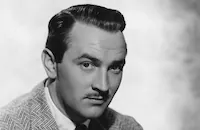
Lee Bowman
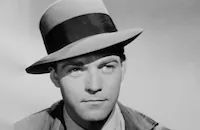
Alan Curtis

Bud Abbott

Lou Costello

The Andrews Sisters

Jane Frazee
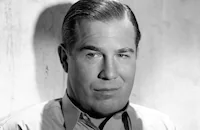
Nat Pendleton
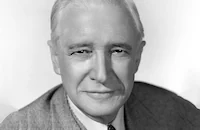
Samuel S. Hinds
Harry Strang

Nella Walker
Leonard Elliott

Shemp Howard
Mike Frankovich
Dora Clemant

Jeanne Kelly
Elaine Morey
Kay Leslie
Nina Orla
Dorothy Darrell
The World Champion Boogie Woogie Dancers
Don Raye
J. Anthony Hughes
Hugh Prince
Frank Cook
Douglas Wood
Charles Coleman
Selmer Jackson
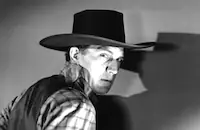
Tom Tyler

James Flavin
Harold Goodwin
Stanley Blystone
Ken Duncan
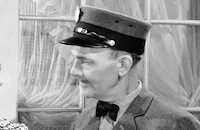
John Butler
Carleton Young
Jack Mulhall
William Gould
Bud Harris
Al Billings
William Hall
Jerome Harte
Jimmy Lucas
Stanley Smith
Frank Penny
Bob Cason
Frank Dolan
Lloyd Ford
Frank Grandetta
Robert Wayne
Lyle Moraine
Will Morgan
Tom Reed
Crew
Jerry Ash
Bernard B. Brown
Sonny Burke
Ted Cain
Nick Castle
Philip Cohn
Ralph M. Delacy
Neville Fleeson
R. A. Gausman
Alex Gottlieb
John Grant
Arthur T. Horman
Vernon Keays
Milton Krasner
Paul Neal
Jack Otterson
Charles Previn
Hugh Prince
Don Raye
Jaik Rosenstein
Vic Schoen
Vic Schoen
Albert Von Tilzer
Gil Valle
Captain Jack Voglin
Vera West

Videos
Movie Clip





Trailer
Hosted Intro
Film Details
Technical Specs

Award Nominations
Best Score
Best Song
Articles
Buck Privates
What passes for a plot in Buck Privates would set the formula for Abbott & Costello's run in Hollywood, providing just enough story to give the gifted clowns of patter a setting to perform their stage-honed shtick. Sidewalk hucksters Slicker Smith (Bud) and Herbie Brown (Lou) are rousted from their attempts to earn a marginally honest living by an angry cop (Nat Pendleton), and duck into a busy theater in hopes of escape. They wind up realizing too late that the movie house has been converted into an enlistment center, and that the "prize drawing" they signed for was a stint with Uncle Sam. Things get even worse when they report to boot camp, and discover that Pendleton is their master sergeant.
Basic training lent a contemporary context for A&C's brand of comedy, and audiences of the day responded enthusiastically. This was best demonstrated in the sequence where Bud attempts to guide the hapless Lou through drill ("Throw your chest out!" "I'm not done with it!"), which necessitated a dozen takes because Costello kept cracking up director Arthur Lubin. Editor Phil Cahn was under orders to preserve every foot of it, and the end result of his cobbling is brilliant. Lubin recounted for Bob Furmanek and Ron Palumbo's Abbott and Costello in Hollywood (Perigee) how the stage veterans had some initial trouble adjusting to their new medium. "They played to the people on the set instead of the camera. They were used to having a live audience and missed getting laughs. But they learned quickly and we had a lot of fun on that picture." From Abbott's attempts to fleece the alleged novice Costello at craps, to goading him to blast the radio in defiance of Pendleton's orders, their interplay is captured in peak form.
Beyond A&C's foible-filled escapades in basic training, the story presents a romantic triangle between a pretty camp hostess (Jane Frazee), an arrogant playboy (Lee Bowman) certain that his father's pull will get him out of service, and his pushed-to-the-limit former valet (Alan Curtis). Frazee's support staff includes the singing Andrews Sisters, who use their multiple interludes to deliver such hits of the period as Boogie Woogie Bugle Boy from Company B, Bounce Me Brother With a Solid Four and I'll Be With You in Apple Blossom Time. In structure, Buck Privates feels like a filmed vaudeville revue, alternating comedy skits with musical numbers. The film's perky soundtrack would net its only Oscar® nominations for score (Charles Previn) and song (Boogie Woogie Bugle Boy).
Alex Gottlieb, the producer who shepherded A&C's film career during their peak at Universal, recounted how the studio drafted him from its screenwriting ranks for Furmanek and Palumbo's work. Milton Feld, the Universal executive who had earlier given Gottlieb his start in the industry, told him that he was "the twenty-seventh writer I've talked to. Everyone else turned it down. They all want to be producers, too. But they all said that these are a couple of cheap burlesque comics who will never get anywhere." Gottlieb, who had seen the pair in their popular Broadway success Streets of Paris, was convinced of the breadth of their appeal. He responded to the challenge by declaring that "I will be the star producer on your lot, I will make Universal rich, and I will make stars out of Abbott and Costello."
The whole enterprise was budgeted at around $200,000. Universal had originally offered A&C $50,000 per picture to sign with the studio for seven years; the comics countered for either $60,000 or $50 G plus 10% of the gross. Universal confidently took the latter option, and the studio heads must have had reason to wince after the blockbuster success of Buck Privates. In light of what Abbott & Costello would come to mean for the studio's fortunes over the war years, though, they came out well ahead of the game.
Producer: Alex Gottlieb
Director: Arthur Lubin
Screenplay: Arthur T. Horman, John Grant
Cinematography: Milton Krasner, Jerry Ash
Film Editing: Philip Cahn
Art Direction: Jack Otterson
Music: Sonny Burke, Hugh Prince, Don Raye, Vic Schoen, Frank Skinner, Charles Previn
Cast: Lee Bowman (Randolph Parker III), Alan Curtis (Bob Martin), Bud Abbott (Slicker Smith), Lou Costello (Herbie Brown), Jane Frazee (Judy Gray), The Andrews Sisters (Themselves).
BW-85m. Closed Captioning.
by Jay S. Steinberg

Buck Privates
The Best of Abbott and Costello, Volume One
So why the popularity? Because Abbott & Costello had a type of goofy charm that comes through no matter what the circumstances and at their best were undeniable masters of comic dialogues. Good evidence can be found in the new DVD set The Best of Bud Abbott and Lou Costello, Volume 1 which contains their first eight feature films from 1940 to 1942 (the only one missing from that period is Rio Rita, presumably to be included in the next set). Better yet the entire package has a list price of $24.98 and despite such a budget price the films show crisp remastering and respect for detail. There are also some good though brief production notes included. The one drawback is that the discs and packaging don't tell you which side of which disc has a particular film; that information is only given on an insert.
In their first feature, One Night in the Tropics the duo are second-billed as a test for their screen abilities. They do manage to get off a couple of striking routines but it's the followup, Buck Privates (1941), that really showed what they could do. This is one of their best efforts, with the two unintentionally enlisting in the Army and the mayhem that results from that encounter; just imagine Lou trying to follow a drill sergeant's orders! With U.S. participation in the war looming, Abbott & Costello made two more service comedies that same year as morale boosters. In the Navy and Keep `Em Flying both follow the Buck Privates pattern though with enough fast and and snappy bits to keep things lively. Keep `Em Flying is particularly helped by the presence of ex-vaudeville comic/singer Martha Raye (who ironically enough was in real life afraid of flying).
Other Abbott & Costello films tend to present a high concept situation where the boys are let loose. Thus you'll find them in a haunted house (Hold That Ghost), a dude ranch (Ride `Em Cowboy), the South Seas (Pardon My Sarong) and a murder mystery (Who Done It?). None are classics even by A&C standards but generally work on sheer momentum. Hold That Ghost showcases a stream of sight gags (Lou's reactions to a mysteriously moving candle), twisting patter, peculiar characters and even songs courtesy of the Andrews Sisters. It's never more than the sum of its parts but most comedies don't even have parts that good. Still, an example of A&C at their weakest is Ride `Em Cowboy, one reason being because the team doesn't appear as often in it. Much of the time is instead given over to a tedious plot and lame singers, with the notable exception of a 25-year-old Ella Fitzgerald girlishly romping through her breakout hit "A-Tisket A-Tasket" (though unfortunately backed by a Hollywood orchestra instead of a jazz band).
Despite that film, it's hard to go wrong with a set at such a low price. Abbott & Costello won't appear on any future Sight and Sound polls but neither will they be forgotten.
. To order The Best of Abbott and Costello, Vol. 1, go to TCM Shopping.
by Lang Thompson
The Best of Abbott and Costello, Volume One
Quotes
Trivia
Although Arthur Lubin was a contract director at Universal, on a set weekly salary, Buck Privates was such a huge hit ($4 million gross on a $180,000 budget) that Universal gave him a $5,000 bonus.
The train whistle blows Lou Costello's catchphrase, "I'm a bad boy."
Abbott and Costello's drill routine ran only two-and-a-half minutes in the script, but was allowed five minutes of screen time because of their ad-libbing. Much of their dialogue as ad-libbed throughout the movie.
A sneak preview was held in late January 1941 for soldiers at Fort MacArthur, California.
During WWII, the Japanese used to show the sequence "Drill Routine" from this movie to show how stupid the American Army was.
Notes
While actors Bud Abbott and Lou Costello receive above-the-title listings in the opening credits, they were billed third and fourth respectively in the closing credits. Radio announcer Mike Frankovich's name was misspelled in the credits as "Frankovitch." According to Universal publicity materials, this was the first film to deal with the new peace-time military draft, signed into law by President Franklin Delano Roosevelt on September 16, 1940. In October 1940, Hollywood Reporter reported that Universal had assigned writer Harold Shumate to write an untitled "military conscription comedy," similar to one planned at Columbia. Then, in November 1940, Hollywood Reporter reported that Universal contract players Richard Arlen and Andy Devine had been cast in Buck Privates, a "story dealing with life in the present day army camps," which was to be written by Maxwell Shane and produced by Ben Pivar. It has not been determined if any material from these writers was used in this film.
The Andrews Sisters were signed by Universal to appear in the film in mid-November 1940, based on an eight-week commitment. According to Hollywood Reporter, Abbott and Costello, along with the Andrews Sisters and Universal contract player Hugh Herbert, performed in a USO show at Camp Elliott, the U.S. Marine Corps Base in San Diego, CA, just prior to beginning work on this film. In November 1940, director Arthur Lubin signed a seven-year contract with Universal. Hollywood Reporter news items indicate that dance director Nick Castle was borrowed from Twentieth Century-Fox for work on this film, while actor Lee Bowman was borrowed from M-G-M. Hollywood Reporter production charts indicate that actress Nell O'Day was cast in the picture, but her appearance in the released film has not been confirmed. Actress Maria Montez also appeared in Hollywood Reporter production charts for the picture in early January 1941, but she did not appear in the released film. New items also state that Lou Levy, the head of Leeds Music Publishing and the manager of the Andrews Sisters, was allowed to select the music for this film, though he was not credited in any official capacity by Universal. Hollywood Reporter also stated that a sneak preview of the film was held in late January 1941 for soldiers stationed at Fort MacArthur, CA.
Buck Privates was the first film produced by Alex Gottlieb, who had previously worked at Universal as a screenwriter. Hollywood Reporter reported in January 1941 that Gottlieb had been permanently promoted to associate producer by the studio based on a rough cut of this film. Then, based on outstanding preview cards and reviews, Gottlieb was assigned to a second Abbott and Costello film. According to modern sources, seventeen other writers had turned down this job before it was offered to Gottlieb. In late February 1941, Abbott and Costello themselves were rewarded for their work in the film with a four-picture deal by Universal. Hollywood Reporter stated in mid-April 1941 that the film was so popular in some portions of the country that there was a shortage of prints, so Universal was forced to "bicycle" prints between theaters in the same town.
Because of the tremendous success of this film, Universal delayed the release of Abbott and Costello's next film, Hold That Ghost , in order to upgrade the production values of that film and to capitalize on the military comedy elements of their third film of 1941, In the Navy . Abbott and Costello's fourth released film of 1941 was also a military comedy, entitled Keep 'Em Flying . According to modern sources, after the failure of Abbott and Costello's first film, One Night in the Tropics (see AFI Catalog of Feature Films, 1931-40; F3.3271), Buck Privates was given a "B-film" budget of $180,000, with a twenty-day shooting schedule on standing sets. These sources also state that Abbott and Costello ad-libbed much of their dialogue, including the drill routine, which ran only two and a half minutes in the script, but was allotted five minutes of screen time. Modern sources also indicate that director Lubin shot the Abbott and Costello sequences using two or three cameras simultaneously to capture their spontaneity. Pat Costello worked as a stunt double for his brother in the film's boxing sequence, according to modern sources. Modern sources report that, by March 1941, the film had grossed $1,000,000 domestically, with final grosses over $4,000,000. Charles Previn received an Academy Award nomination for his musical scoring of the picture, and Hugh Prince and Don Raye's song "Boogie Woogie Bugle Boy of Company B" was also nominated for an Oscar. Bud Abbott starred with Lou Costello in a October 13, 1941 Lux Radio Theatre broadcast of the story. In 1947, Universal made a sequel to this film, entitled Buck Privates Come Home .

Miscellaneous Notes
Released in United States Winter January 31, 1941
Released in United States Winter January 31, 1941
















